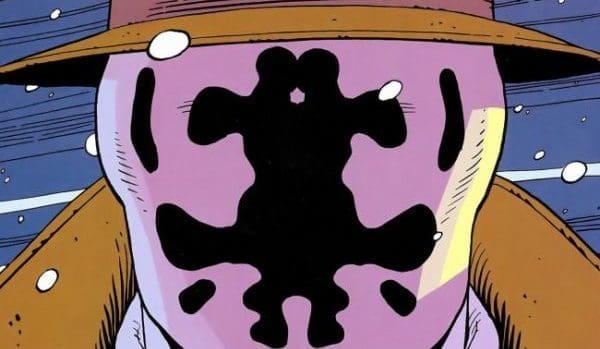
The internet is well known for its constant state of perpetual outrage, and nothing enrages the internet quite like the truth. In this case, X (formerly known as Twitter) took up arms at my true yet desperately obvious take on Rorschach of Alan Moore’s grande superheroic epic: WATCHMEN. This legendary work centers around the idea of the fantastical superhero existing in our real, morally gray, and complex world. Ask almost anyone about the book, and they’ll likely tell you it was Alan Moore’s deconstruction of traditional heroes, and if legend holds true, they might be right. However, just because Watchmen, and perhaps even the writer, may not like traditional heroism doesn’t mean what we think of as traditionally heroic suddenly goes away. This is exactly why, despite any claims to the contrary, Rorschach remains the hero of Watchmen.
Of course, state that claim out loud, and you might, as I experienced, hear a hilariously crass cacophony of shrill cries vomiting the age-old rebuttal: “If you think Rorschach is the hero then you’ve missed the point of Watchmen!” And then dribble out something about your “low-level media literacy.”
After all, when author Alan Moore was asked about Rorschach, he had this to say:
So, I thought, ‘Alright, if there was a Batman in the real world, he probably would be a bit mental.’ He wouldn’t have time for a girlfriend, friends, a social life, because he’d just be driven by getting revenge against criminals… dressed up as a bat for some reason. He probably wouldn’t be very careful about his personal hygiene. He’d probably smell. He’d probably eat baked beans out of a tin. He probably wouldn’t talk to many people. His voice probably would have become weird with misuse, his phraseology would be strange.
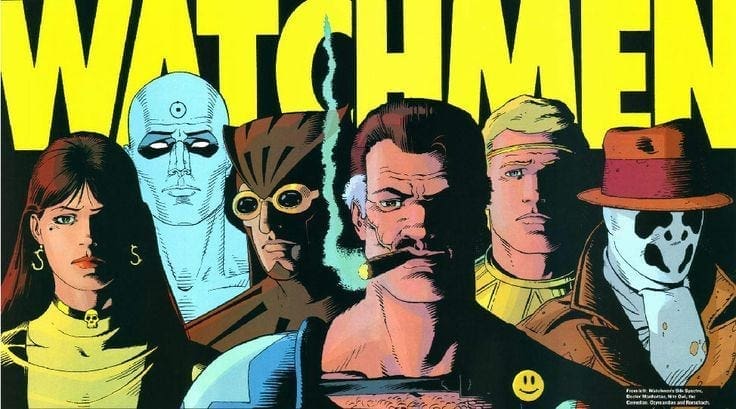
“I wanted to kind of make this like, ‘Yeah, this is what Batman would be in the real world.’ But I had forgotten that actually to a lot of comic fans that smelling, not having a girlfriend—these are actually kind of heroic. So actually, sort of, Rorschach became the most popular character in Watchmen. I meant him to be a bad example, but I have people come up to me in the street saying, ‘I am Rorschach! That is my story!’ And I’ll be thinking, ‘Yeah, great, can you just keep away from me and never come anywhere near me again for as long as I live?'”
-(In an interview he gave to LeJorne Pindling of Street Law Productions in 2008, Alan Moore)
A rather hostile view of comic book fans by the great Alan Moore and a severely uncharitable assumption about anyone who might find Rorschach heroic. Now, one might ask: if even the author thought Rorschach was a bad example – who are you to say any differently?
First, anyone who needs Daddy Alan Moore to think for them has no business participating in any conversation requiring critical thought, let alone hacking up an opinion about anyone else’s “media literacy.”
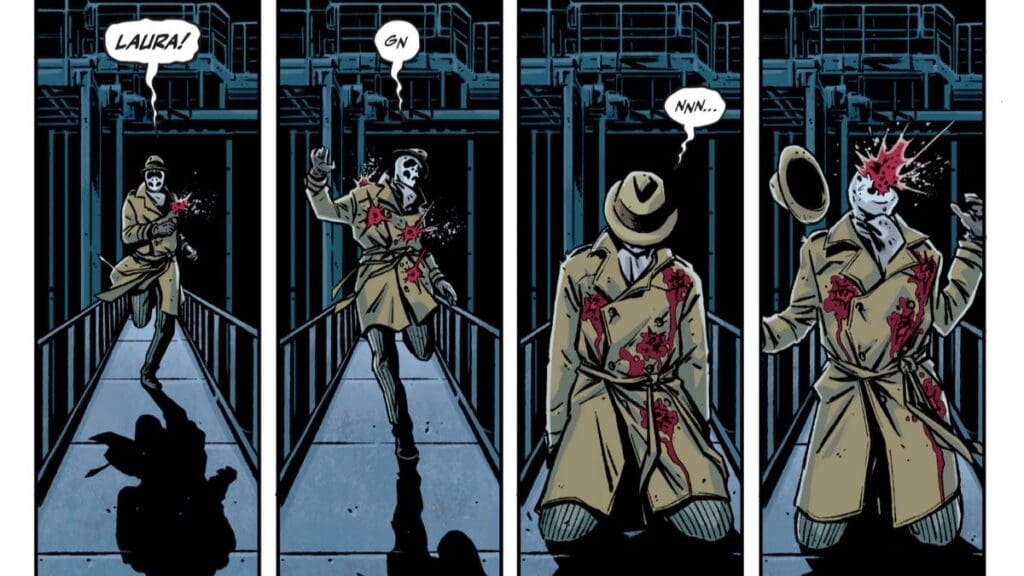
Secondly, the work stands paramount over the author’s opinions. After all, if someone wrote Batman in his usual cape and cowl and the author later said Batman wore a big hat and a fur coat, it wouldn’t suddenly make it so. And, with Watchmen, the reality is less smelly comic book losers idolizing one of their own in a wild misunderstanding of Rorschach and instead Alan Moore misunderstanding heroism.
As Alan Moore intended, Rorschach is portrayed as a smelly, mentally broken vigilante with poor hygiene, empty pockets, and no girlfriend. Furthermore, his tactics range from ruthless to cruel, and he prefers to murder criminals rather than toss them in jail unlawfully. Rorschach is rude, socially awkward, and broken. He’s all the things Alan Moore said he would make such a character, but does the mere act of liking Rorschach or, going further, naming him the hero of Watchmen mean you’re all the things Alan Moore said you would be? Is there no other reason to have a positive view of Rorschach other than one sharing his most despicable traits? Not necessarily. Here’s why.
Watchmen challenges the idealized superheroic figure by placing these romanticized characters in our very real and complicated world. The story is an intriguing tale of hard-hitting moral complexity and an exploration into human nature, and the narrative’s dramatis personae is just as complex. The Comedian is a broken man taking his anger out on the world, Night Owl is a relatively weak man trying to be the hero he doesn’t have the strength to be, and Rorschach is the man whose outlook is best reflected in one of his most famous quotes:
“The streets are extended gutters and the gutters are full of blood and when the drains finally scab over, all the vermin will drown. The accumulated filth of all their sex and murder will foam up about their waists and all the whores and politicians will look up and shout ‘SAVE US!’…and I’ll look down and whisper ‘No.” – Rorschach, Watchmen.
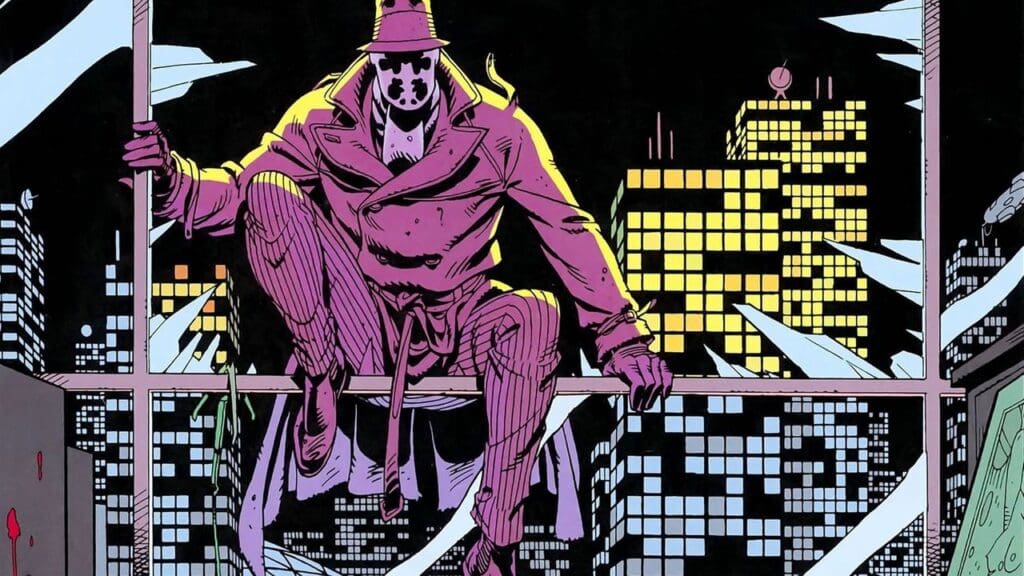
RELATED: Near Mint Condition Unveils Marvel Epic Collections Of Classic Marvel Comics For Q4 2024
From the start, Rorschach’s view is a rigid black and white. Those who do evil and who willfully wallow in that evil deserve their fate. Note that, along with everything else, murder is among the evils listed. This is particularly important because murder plays a big role in Rorschach’s life.
Rorschach’s mind was forever warped when he encountered a child murderer after the grisly deed was done. This event gave Rorschach his unyielding moral worldview. Rorschach would face a similar conflict when he learned Ozymandias, another hero, had essentially nuked New York, murdering millions of innocent people.
All through the story, the world was teetering on a world-ending nuclear war between the USA and Russia. To prevent this outcome, Ozymandias decided to create a giant alien monster and have it explode, killing millions but tricking the world into thinking a deadly alien invasion was inevitable. To make matters worse, the plan worked.
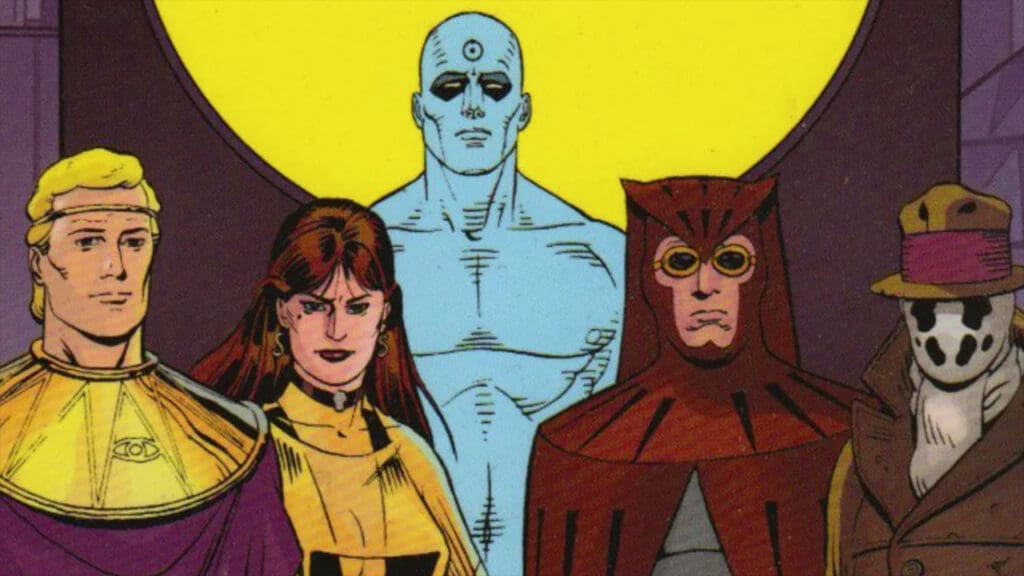
So our heroes faced a terrible choice: Give up and allow Ozymandia’s peace to go unchallenged, or expose the plot and bring the mass murdering Ozymandias to justice?
Letting Ozymandias walk means letting a mass murderer go unpunished, but the threat of armageddon would be over. Exposing Ozymandias would force him to face justice and bring justice to all those innocent souls, but the peace might break once the world knew the alien invasion was a trick. It’s this moment that shows us the true character of each hero. Silk Specter and Night Owl bend the knee to Ozymandias’ plan. Even the godlike Dr. Manhattan sides with Ozymandias. Rorschach, however, does not. While everyone else compromised their morals and chose a flimsy peace built on a lie, Rorschach stood resolute. He refused to let the child murderer walk, and he refused to let the horror of Ozymandias go unpunished. In our hero’s own words:
“Evil must be punished. People must be told.” – Rorschach, Alan Moore’s Watchmen
A fair hero rarely wins his laurels by compromising his morals. Out of all the heroes in Watchmen, only Rorschach maintained his zealous pursuit of justice. Only he thought the best course of action was to bring a horrific criminal to pay for his horrifying crime. Some might say Ozymandias would be a hero by that metric since he, too, never wavered. However, Ozyamandia’s arrogance and strong belief that only he knew best led him to take major action on behalf of the world. Ultimately, Ozymandias remained dedicated to world peace at any cost, while Rorschach remained dedicated to fighting evil at any cost.
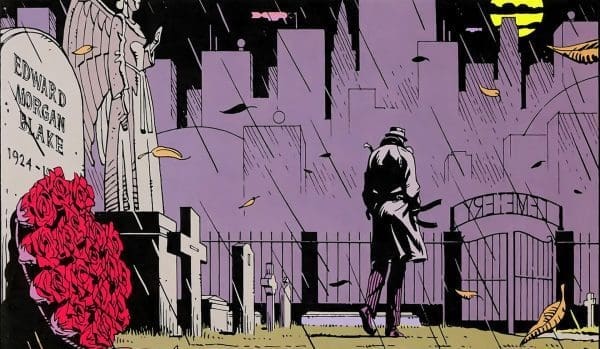
In any other story, Rorschach would be the hero. His refusal to let evil go unpunished and revelation of the truth would be admirable. Like that time in Identity Crises when the Justice League punished a criminal without a trial. Only Batman chose to stand against this unjust action. In short, despite his many flaws, Rorschach acted in the most traditionally heroic way when the big moment came.
It isn’t always about the cape or uniform; it’s about the moment and those willing to act on it. It’s the guy who steps in to save a stranger from a fire or help an old woman cross the street. If that weren’t enough, who else might agree but Alan Moore himself?
Let’s recall what he said: So, I thought, ‘Alright, if there was a Batman in the real world, he probably would be a bit mental.’
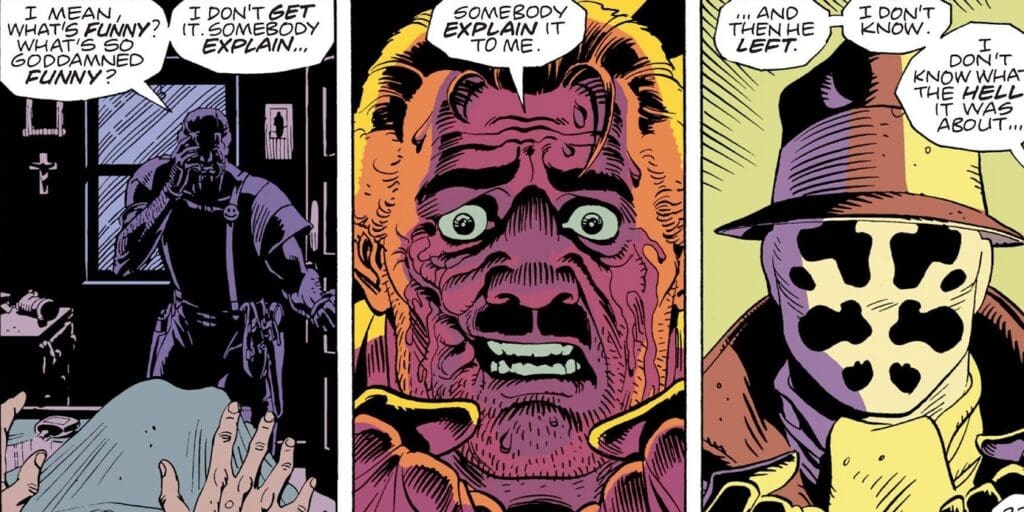
Rorschach is Alan Moore’s interpretation of Batman or what he would be like in the real world. Sure, Rorschach is crazy and murderous, but at his core, he dedicates his existence to punishing evil.
Ozymandias committed a horrific crime for the sake of the greater good. Rorschach sought to bring one of the worst criminals in history to justice. He was the one man who could stand against the great Ozymandias because Rorschach was equipped with the one undeniable weapon every traditional hero tends to wield: the truth.
Only the truth could crumble the mastermind’s lie and bring him to justice. Because in a world of lies, truth is your greatest weapon.
What do you think? Is Rorschach the real hero in Alan Moore’s Watchmen? Leave a comment and let us know.
Fandom Pulse would like to thank Literature Devil for contributing this essay on Alan Moore’s Watchmen! Check out his YouTube here.
NEXT: Doctor Who Actor David Tennant’s Wife Bullied Off Twitter For Refusing To Attack Israel

Alan Moore’s hatred for Steve Ditko’s Mr. A and The Question was palpable within Watchmen, but even Moore couldn’t unmake what Ditko stood for in a character designed to mock those works–Rorschach. Moore’s creation only emphasized Dikto’s works were superior being based on actual Good and Evil.
May Alan Moore’s painful mental anguish last until it brings his repentance.
Is is interesting that Moore’s attempt to ridicule Ditko’s creations backfired the way they did. More evidence, in my opinion, of Moore’s creative mediocrity.
Excellent points
Rorschach’s initial creation from learning that a woman was murdered and bystanders didn’t just fail to act but sat and watched also shaped his views. He couldn’t sit and watch like the watchmen as Ozymandias murdered millions before their eyes. There’s a detachment with how Moore created this character and this story. He seems to expect the same level of detachment from the reader as the watchmen in the story. Heroes, especially crime fighting heroes, are defined by their inability to detach themselves from the evil they witness.
Amen to that.
I agree wholeheartedly with Literature Devil’s conclusions. I have alway considered Rorschach to the most admirable character in Watchmen.
I have read a lot of Moore’s work. Enough to be of the opinion that he thinks rather highly of himself and is overrated as an author. I think that he not only does not understand superheroes very well, but actively hates the genre and anyone involved in it, professionally or as a fan. Also, I think his world view suffers from a posturing sort of niavette that shows through in his writing. For instance, on the one hand, he seems to be a proponent of moral relativism (embodied by Comedian, Ozymandias, and Manhattan) as part of some sort of evolved level of thinking but on the other hand is foolish enough to think that an anonymous journal mailed by Rorschach to a newspaper will somehow expose Ozymandias in the end.
I don’t really care for his work, personally, but I did enjoy the movie adaptations, which were better than his original stories. And the more I read about him and the footage I’ve seen of him speaking convince me that I would likely find the man to be insufferable as a human being. I’m sure the feeling would be mutual.
Pretty obvious to me when I was buying the maxi-series back in the day.
If the net had been available back then it would have been interesting to see the fan discussions. Also, Ditko > Moore.
Is it really any surprise that the hyper-woke watchmen TV series decided tyo make rorsach’s legacy the ultimate evil?
Moral relativism is a harsh and tyrannical mistress.
Check the 2012 article on what you mentioned on Kitty
Psychology’s tall tales
https://www.apa.org/gradpsych/2012/09/tall-tales